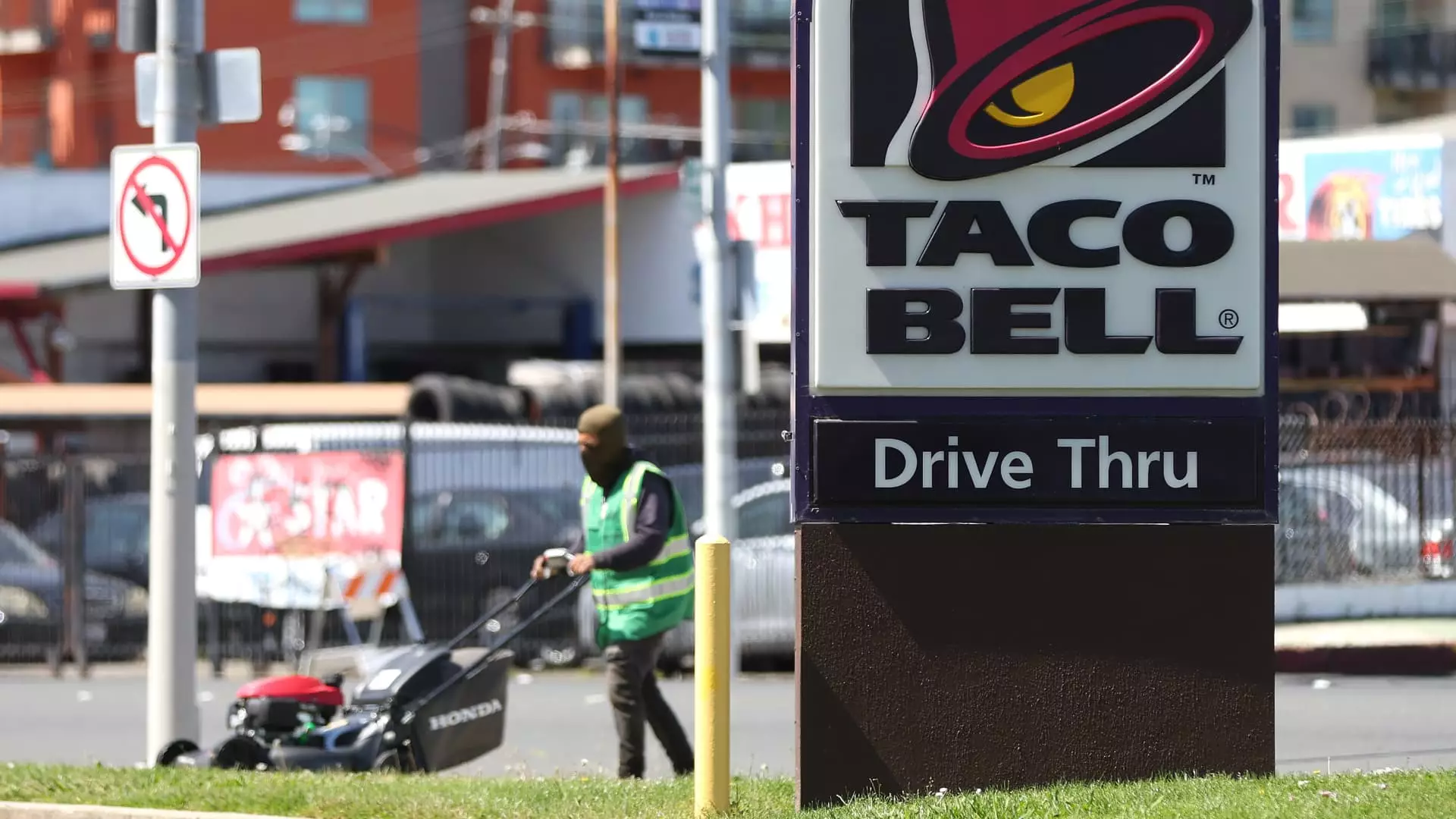Yum Brands recently reported a quarter filled with ups and downs. While the company’s earnings per share beat Wall Street expectations at $1.35 adjusted versus $1.33 expected, revenue fell short at $1.76 billion compared to the $1.8 billion that was anticipated. The biggest challenge for Yum Brands came in the form of declining same-store sales at both Pizza Hut and KFC.
Yum CEO David Gibbs pointed to various factors contributing to the decline in same-store sales, including the ongoing Middle East conflict and a more cost-conscious consumer base. These challenges have presented headwinds for the company in terms of sales growth. However, there was a silver lining in the U.S., where sales trends showed improvement compared to the previous quarter. Value meals, such as Pizza Hut’s $7 Deal Lovers, played a key role in driving sales domestically.
Both Pizza Hut and KFC faced significant obstacles in the quarter. Same-store sales at Pizza Hut declined by 1%, with international same-store sales dropping by 4%. KFC, on the other hand, saw a same-store sales decline of 3%, with U.S. restaurants struggling the most as domestic same-store sales shrank by 5%. Although KFC experienced growth in China, its overall international same-store sales fell by 3%.
In contrast to the struggles at Pizza Hut and KFC, Taco Bell, Yum Brands’ shining star, reported a 5% increase in same-store sales. The chain’s reputation for offering value meals helped it weather the storm of reduced consumer spending. Taco Bell’s success was evident across all income cohorts, showcasing its ability to resonate with a broad audience.
Looking ahead, Yum Brands announced plans to expand the use of artificial intelligence in Taco Bell drive-thru lanes at hundreds of U.S. locations by the end of the year. However, the company faces challenges in regions affected by the Middle East conflict, with roughly 200 restaurants temporarily closed in areas like Malaysia and Indonesia. While some locations may reopen soon, the risk of permanent closures looms if the conflict escalates. Chief Financial Officer Chris Turner acknowledged this risk and emphasized the need for strategic planning in the face of uncertainty.
Yum Brands’ mixed quarter highlights the importance of adapting to changing consumer preferences and external factors that impact the business. While there were successes at Taco Bell, challenges at Pizza Hut and KFC underscore the need for strategic initiatives to drive growth and resilience in a competitive market landscape.

